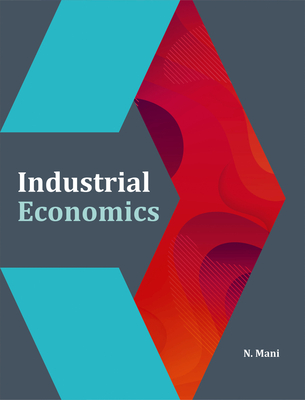Industrialization, being the significant determinant of economic development, has become the focus of economic policy for most countries of the world. Industrial growth contributes to the welfare of an economy by creating new occupations and hence new job opportunities. It is also associated with improvement in infrastructural facilities like transport and communications. In the wake of liberalization, privatization and openness wave sweeping across the world, emerging economies are paying greater attention to industrialization of their respective economies. Industrial economics is the study of firms, industries, and markets. In the context of decision-making, industrial economics helps to understand such issues such as the levels at which capacity, output, and prices are set. Industrial economics also gives insights into how firms organize their activities with the main objective of profit maximisation. There is also an international dimension to industrial economics: firms have the option to source inputs from and sell their products to foreign countries. Globalization has led to the growth of transnational (or multinational) corporations which operate in many parts of the world. Companies which operate in more than one country face different regulatory and tax regimes. Cross-border mergers and acquisitions (M&As) are becoming popular as transnational corporations take advantage of widespread liberalisation and deregulation to gain market shares, consolidate operations, improve efficiency and dilute the costs associated with investing in research and development and information technology. Although formation of regional groupings have been the prime movers of the bulk of the cross-border M&As in the developed world, M&As have also emerged as the preferred mode of foreign direct investment (FDI) inflows to the developing countries. This book provides an understanding of the various problems and situations faced by the present and prospective entrepreneurs in setting-up/expanding their industrial units. It underscores the significance of industrialization and how modern economies are ensuring it. It explains and examines various issues involved in the process of industrialization in a lucid, cogent and analytical manner. It would connect teachers and students of the subject to the basic concepts, components and processes of industrial economics. The book contains 25 chapters which have been organized into 2 parts. Part I (chapters 1 to 18) is titled Basics of Industrial Economics. It provides conceptual and analytical clarification as regards forms of business organization, location of industry, types of market, production, cost and revenue functions of a firm, industrial productivity and efficiency, trade marks and patents, mergers and acquisitions (M&As), special economic zones (SEZs) and technology parks, entrepreneurship and innovations, industry and internet, industrial pollution and various other topics related to the subject. Part II (chapters 19 to 25) is titled Industrialization in India. It explains and examines Indian industry in historical perspective, important laws to regulate industry and business, public sector enterprises (PSEs), micro, small and medium enterprises (MSMEs), industrial finance, recent initiatives for industrial development and ease of doing business in India.
Get Industrial Economics by at the best price and quality guranteed only at Werezi Africa largest book ecommerce store. The book was published by New Century Publications and it has pages. Enjoy Shopping Best Offers & Deals on books Online from Werezi - Receive at your doorstep - Fast Delivery - Secure mode of Payment
 Jacket, Women
Jacket, Women
 Woolend Jacket
Woolend Jacket
 Western denim
Western denim
 Mini Dresss
Mini Dresss
 Jacket, Women
Jacket, Women
 Woolend Jacket
Woolend Jacket
 Western denim
Western denim
 Mini Dresss
Mini Dresss
 Jacket, Women
Jacket, Women
 Woolend Jacket
Woolend Jacket
 Western denim
Western denim
 Mini Dresss
Mini Dresss
 Jacket, Women
Jacket, Women
 Woolend Jacket
Woolend Jacket
 Western denim
Western denim
 Mini Dresss
Mini Dresss
 Jacket, Women
Jacket, Women
 Woolend Jacket
Woolend Jacket
 Western denim
Western denim
 Mini Dresss
Mini Dresss






























































